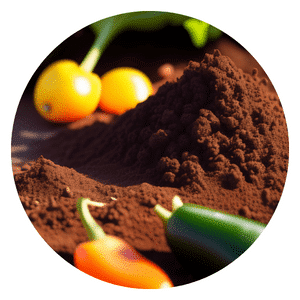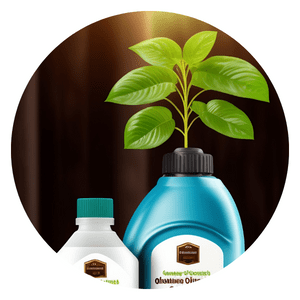Does Eggplant Grow Back Every Year?
The eggplant, a beloved staple of many diets and cuisines around the world, has long been a part of gardens and farms.
But does this wonderous vegetable grow back every year?
In this article, we will explore the answer to this question and look at what factors can influence the growth of eggplant plants.
We will also discuss how gardeners can best care for eggplants in order to maintain a healthy harvest.
Eggplant Menu
Understanding Eggplants
Eggplants, also known as aubergines, are versatile and delicious vegetables that can be used in a variety of dishes.
They are low in calories and high in fiber, making them an excellent choice for anyone looking to maintain or lose weight.
Additionally, eggplants are rich in antioxidants that help to protect the body from damage caused by free radicals.
In terms of growing eggplants, they are typically annual plants that need to be replanted each year.
However, it is possible for some varieties of eggplant to grow back every year under certain conditions.
This is because eggplants are perennials in their native tropical regions but behave as annuals in colder climates.
In order for eggplants to grow back each year, they need well-draining soil and plenty of sunshine.
They also require protection from frost during the winter months if they are to survive until the following spring.
By providing these ideal growing conditions, you may be able to enjoy fresh eggplants from your garden year after year!
Eggplant types
Eggplant is a versatile vegetable that comes in different types, each with its unique taste and texture.
The most common type of eggplant is the traditional large globe-shaped variety, which has deep purple skin and white flesh.
However, there are also other eggplants available in the market that come in different sizes, shapes, and colors.
For instance, the Japanese eggplant is long and thin with a dark purple skin while the Italian eggplant is rounder with a lighter shade of purple.
When it comes to growing eggplants, many gardeners might wonder if these vegetables grow back every year.
Well, unlike perennial plants that regrow annually from their roots or bulbs, eggplants are annuals that only survive for one season.
This means that you will have to replant your eggplants every year to enjoy this delicious vegetable fresh from your garden.
In conclusion, Eggplant types vary widely depending on their size, shape and color.
Gardeners should know that Eggplants do not grow back every year as they are annuals hence require replanting yearly for fresh produce.
Planting eggplant
Eggplants are a popular vegetable in many gardens and farms.
They require warm temperatures and plenty of sunlight to thrive.
Eggplants are also known for their large, showy flowers that can attract pollinators like bees and butterflies.
However, unlike some vegetables, eggplant plants do not grow back every year.
Eggplant is an annual plant that completes its life cycle in one growing season.
This means that after the plant has produced fruit, it will die off naturally or be killed by frost in colder climates.
If you want to grow eggplants again the following year, you will need to start new plants from seed or transplant young seedlings.
When planting eggplant seeds or seedlings, it’s important to choose a spot with full sun exposure and fertile soil that drains well.
The ideal planting time depends on your climate zone, but generally speaking, eggplants should be planted after the danger of frost has passed and soil temperatures have warmed up to at least 60°F (15°C).
With proper care and attention, your new eggplant plants should be ready to harvest within 60-90 days of planting.
Lorem ipsum dolor sit amet, consectetur adipiscing elit. Ut elit tellus, luctus nec ullamcorper mattis, pulvinar dapibus leo.Lorem ipsum dolor sit amet consectetur adipiscing elit dolor
Chappy The Gardener
Growth stages
Eggplant is an annual plant that grows during the warm season.
Once the growing cycle completes, the plant usually dies off and does not come back in subsequent seasons.
However, eggplants can go through different growth stages before reaching maturity.
The first stage is germination, which lasts around two weeks after planting seeds in soil.
The second stage is seedling development, where tiny leaves start to appear on top of the stem as it begins to grow taller.
The third stage is vegetative growth, where the plant starts to produce more leaves and stems, and eventually flowers.
This period can last up to two months or more depending on various factors such as temperature and sunlight exposure.
The fourth stage is fruiting when eggplants start to form on the stems of mature plants.
This process can take several weeks until the fruits are ready for harvest.
In conclusion, while eggplant does not grow back every year like a perennial plant would, it goes through various stages of growth throughout its life cycle before producing fruits that we enjoy in our meals.
Understanding these growth stages helps farmers plan their cultivation practices better and ensures optimal yield from their crops each season they choose to grow them.
Harvesting
Eggplant is a warm-season crop that is primarily grown as an annual vegetable.
This means that it doesn’t grow back every year but needs to be replanted each growing season.
However, in some regions with mild winters and long growing seasons, eggplants may act like perennials and grow back the following year.
When harvesting eggplants, it’s important to know when they are ripe for picking.
A mature eggplant will have a glossy sheen and firm skin without any blemishes or soft spots.
The fruit should feel heavy for its size, indicating that it’s full of juice and flavorful.
After harvesting your eggplants, store them in the refrigerator or cool place away from direct sunlight to keep them fresh longer.
Eggplants can be enjoyed roasted, grilled, baked, fried or added to stews or curries for their unique flavor and texture.
Annual and Perennial Plants
Annual and perennial plants are two broad categories of plants that differ in their growth and reproduction patterns.
Annual plants complete their life cycle, from seed germination to death, within a year, while perennial plants can live for several years.
Eggplant is an example of a perennial plant that is grown as an annual crop in temperate climates because it cannot tolerate frost.
In colder regions where eggplant cannot survive the winter, it is usually grown as an annual plant.
Gardeners typically plant eggplant seeds or transplants at the beginning of the growing season in spring and harvest them later in the summer or early fall before the first frost.
In warmer regions where frost is not a problem, eggplant can be grown year-round as a perennial crop.
It’s worth noting that even when grown as an annual plant, eggplants have some characteristics of perennials.
For instance, they have deep roots that can survive cold temperatures underground and resprout new growth when conditions improve.
However, this regrowth doesn’t always happen because many gardeners prefer to replant fresh crops every year to ensure optimal yields and avoid disease build-up in the soil over time.
Annual plants
Annual plants are those that have a life cycle of one year.
This means that they grow from seed, flower, produce seeds and then die in just one growing season.
Annuals can be further divided into warm-season and cool-season varieties.
Warm-season annuals include plants like marigolds, zinnias, and sunflowers which thrive during the summer months when temperatures are high.
Cool-season annuals such as pansies, snapdragons and violas prefer cooler temperatures and are often planted in the fall or early spring.
Eggplants are considered to be an annual plant because they complete their entire life cycle within one growing season.
They grow from seed to maturity within a period of about four to six months depending on the variety grown.
This means that once they have produced fruit, they will not regrow or produce new fruit the following year without replanting.
It’s important for gardeners who want to grow eggplants every year to plan ahead by starting seeds indoors or purchasing seedlings from a nursery each growing season.
This ensures that there will always be fresh eggplants available for harvest without having to wait until the following year for regrowth.
Perennial plants
Perennial plants are plants that have a lifespan of more than two years.
Unlike annual plants which complete their life cycle within one growing season, perennial plants can survive and thrive for many years with proper care.
They often die back to the ground during winter but grow back from their roots the following spring, providing gardeners with long-lasting beauty and consistent growth in the landscape.
Some common examples of perennial vegetables include artichokes, asparagus, rhubarb, and horseradish.
These crops require less maintenance than annuals because they do not need to be replanted every year.
As for eggplants, they can be either annual or perennial depending on the climate in which they are grown.
In areas with mild winters or warm climates year-round, eggplants can grow as perennials and continue producing fruit for several seasons.
In conclusion, perennial plants offer gardeners numerous benefits including sustainability and reduced maintenance requirements.
Whether you’re looking to plant a vegetable garden or create a beautiful flower bed that will return year after year without replanting, incorporating perennials into your landscape is an excellent choice.
With proper care and attention, these long-lived beauties will provide enjoyment for many seasons to come.
Difference between annual and perennial plants
Annual and perennial plants are two distinct categories of plants that differ in their life cycle.
Annuals complete their life cycle within one growing season while perennials persist for multiple years.
Understanding the differences between these two categories of plants is important to know when trying to decide which type of plant is best suited for your garden.
Annual plants, such as petunias or marigolds, grow quickly from seed or cutting, bloom profusely throughout the summer months and then die at the end of the growing season.
These types of plants are ideal for adding seasonal color to a garden but require replanting every year.
Perennial plants, on the other hand, return year after year and can provide long-lasting beauty in a garden.
Examples include lavender or hostas which come back each year with minimal effort required by the gardener.
While perennials may not have as many blooms as annuals, they offer a more permanent solution to gardening needs and often require less maintenance overall.
So, does eggplant grow back every year?
Eggplants are actually considered a tender perennial plant meaning they need warm temperatures above 68°F (20°C) all-year-round to survive.
In colder climates where winter temperatures drop below freezing point it is grown as an annual crop or indoor houseplant.
Eggplant Growth Habit
Eggplant is a heat-loving vegetable that thrives in warm temperatures and full sun exposure.
It is an annual plant that grows for one season, usually from spring to fall, depending on the geographical location.
As such, it does not grow back every year like some perennials do.
The eggplant plant has a bushy growth habit and can grow up to 3-4 feet tall in optimal conditions.
It produces large leaves with a velvety texture that are often used as ornamental plants due to their attractive appearance.
Eggplants have purple or white flowers that bloom during the growing season, eventually giving way to fruit development.
Once the fruit appears, it takes about two months until they are ready for harvest.
After harvesting, the plant typically stops producing more fruits and begins to decline in vigor.
Therefore, it is important to remove any dead or diseased parts of the eggplant plant at the end of each growing season and start afresh with new seedlings or seeds for next year’s crop.
Eggplant as an annual plant
Eggplants are classified as an annual plant, meaning they complete their life cycle in one growing season.
This means that each year, a new seed must be planted to grow eggplant again.
Eggplants thrive in warm climates and require well-drained soil with plenty of organic matter.
They also need full sun exposure for at least six hours per day.
To grow eggplant successfully, it is essential to start the seeds indoors 8-10 weeks before planting them outside.
After sowing the seeds, they should be kept in a warm environment until they sprout.
Once established plants can be transplanted into the garden when all danger of frost has passed.
While it may not seem like a lot of work to replant eggplant every year, many experienced gardeners find it worthwhile because fresh eggplants are flavorful and contain valuable nutrients like fiber and potassium.
Despite being an annual plant, homegrown eggplants offer delicious rewards for those willing to put in the effort required to grow them!
Eggplant as a perennial plant
Eggplant is a warm-weather crop that can be grown as a perennial plant in tropical and subtropical regions.
However, eggplant is commonly grown as an annual crop in temperate climates, where the plant’s growth cycle is limited by cooler temperatures during the winter months.
In warmer regions, such as parts of India, Thailand, and Brazil, eggplants can grow year-round and produce fruit continuously.
As a perennial plant, eggplants have the ability to survive for multiple growing seasons without needing to be replanted each year.
This makes them an ideal choice for gardeners who want a low-maintenance crop that will provide consistent yields over time.
To maintain healthy plants year after year, it’s important to prune back any dead or damaged foliage regularly and fertilize the soil with compost or other organic matter.
Overall, while eggplants may not be able to grow back every year in all climates due to their sensitivity to cold weather conditions; they can thrive as perennials in tropical climates with proper care and maintenance practices.
Factors affecting eggplant growth habit
Eggplants are warm-season vegetables that thrive in areas with long, hot summers.
However, several factors can affect their growth habit and determine whether they grow back every year.
One of the most critical factors is temperature. Eggplants require temperatures above 60°F to germinate and grow optimally.
If the temperature drops below this threshold for an extended period, the plants may die or produce stunted fruits.
Another factor that influences eggplant growth habit is soil type and quality.
Eggplants prefer well-draining soils rich in organic matter, such as compost or aged manure.
Poor-quality soils with high acidity or salinity can negatively impact eggplant growth and yield, leading to weak plants or deformed fruits.
Finally, pests and diseases are significant determinants of eggplant growth habit.
Common pests that attack eggplants include flea beetles, aphids, spider mites, and whiteflies.
These insects can cause severe damage to the leaves and stems of young plants if left uncontrolled.
Similarly, fungal diseases such as verticillium wilt or bacterial wilt can kill mature plants abruptly if not treated promptly with fungicides or antibiotics.
In conclusion, eggplant is a great vegetable to grow in the garden.
It has a long harvest season with multiple fruits, and as an annual, it does not need to be replanted every year.
For gardeners looking for easy-care vegetables, eggplant is an excellent choice.
While it takes longer to mature than some other vegetables, the effort is worth it when you have loads of delicious eggplants to choose from.
Click To Grow
Helps Us Grow – Share If You Like
















